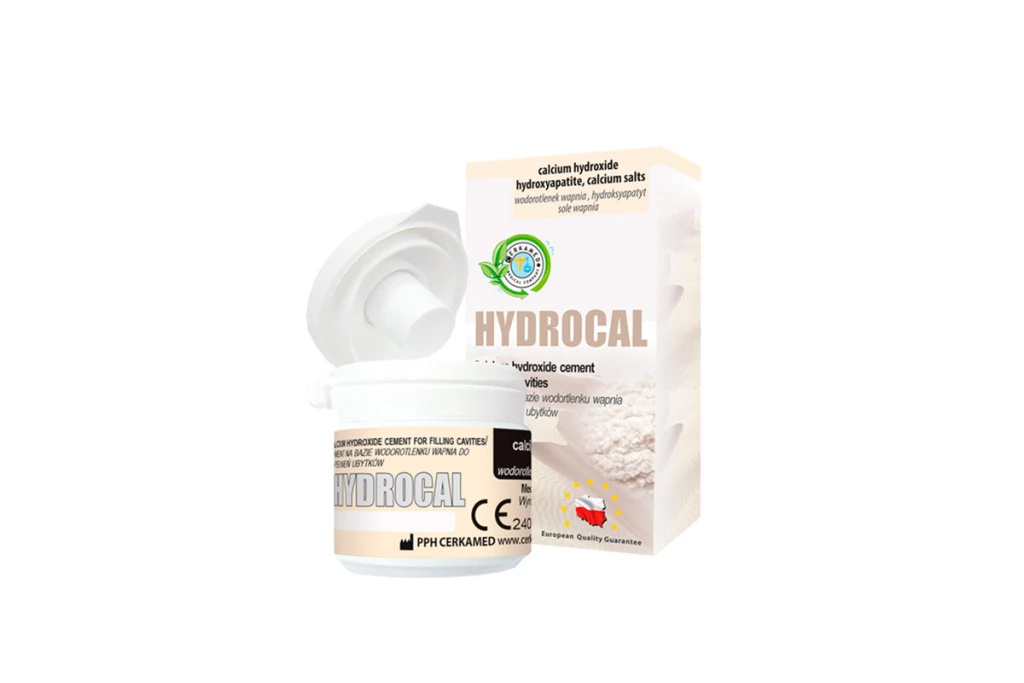Hydrocal 30% calcium hydroxide
ByCerkamed
Code HY125
Description
The Hydrocal preparation is intended for temporary filling material of cavities and root canals, as well as for indirect and direct capping of the pulp. The preparation remineralises the hard dental tissues and constitutes temporary protection of the cavity or root canal before final tooth filling. Ingredients: Calcium hydroxide, hydroxylapatite, calcium salts, anhydrous sodium carbonate, magnesium oxide. How to use: Mix calcium hydroxide with distilled water or physiological saline until you get a paste consistency, fill the cavity or root canal with the paste. Leave the filling in the cavity or canal for 7-30 days. Package with 10g of powder, as well as a mixing spoon.

